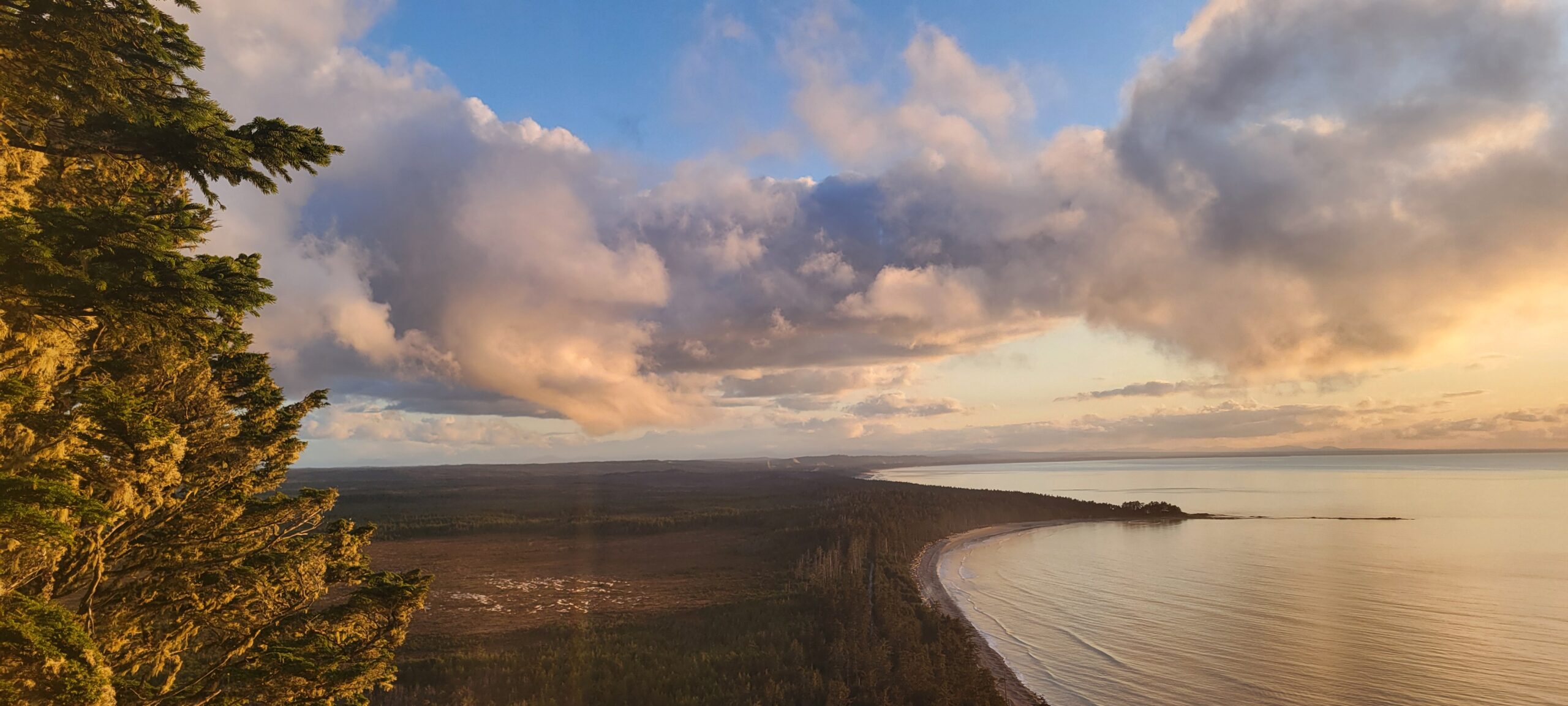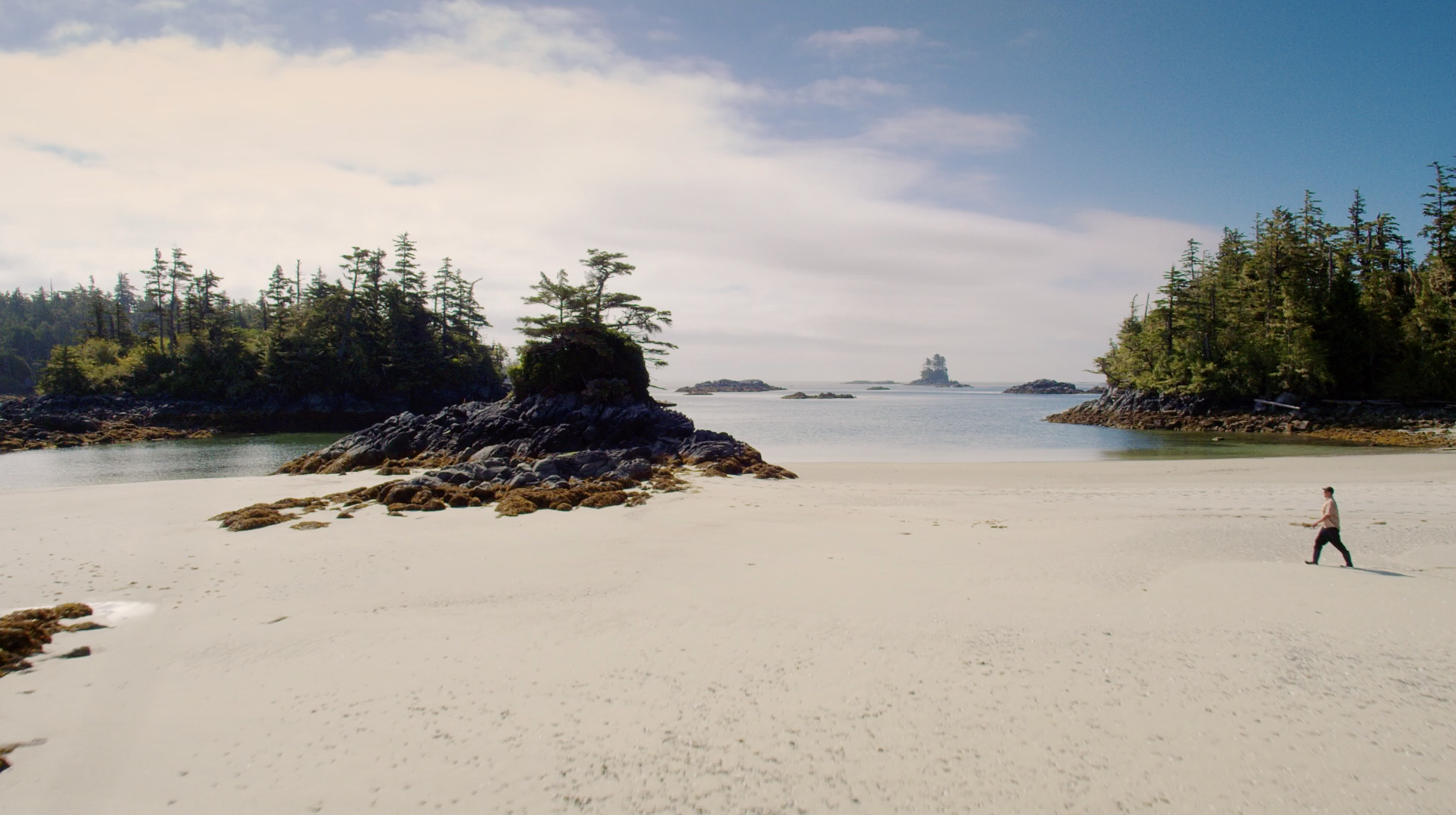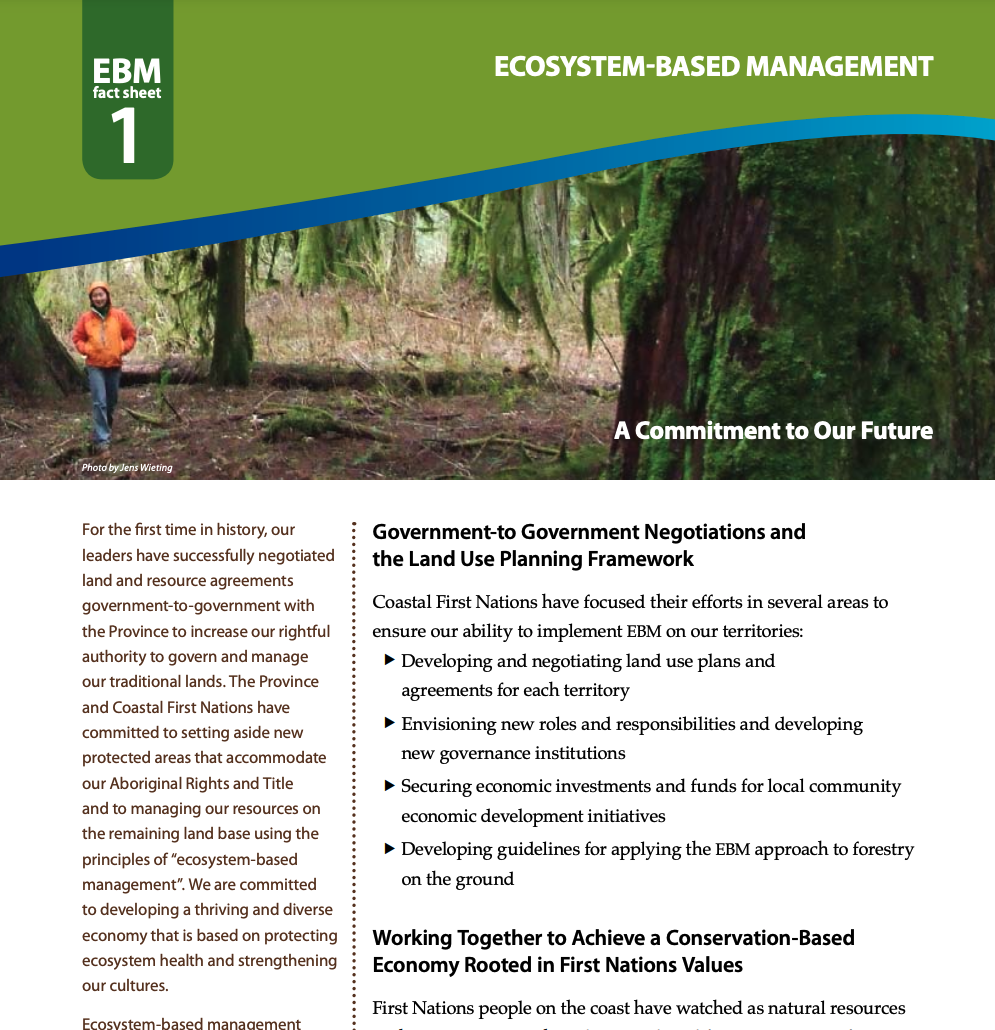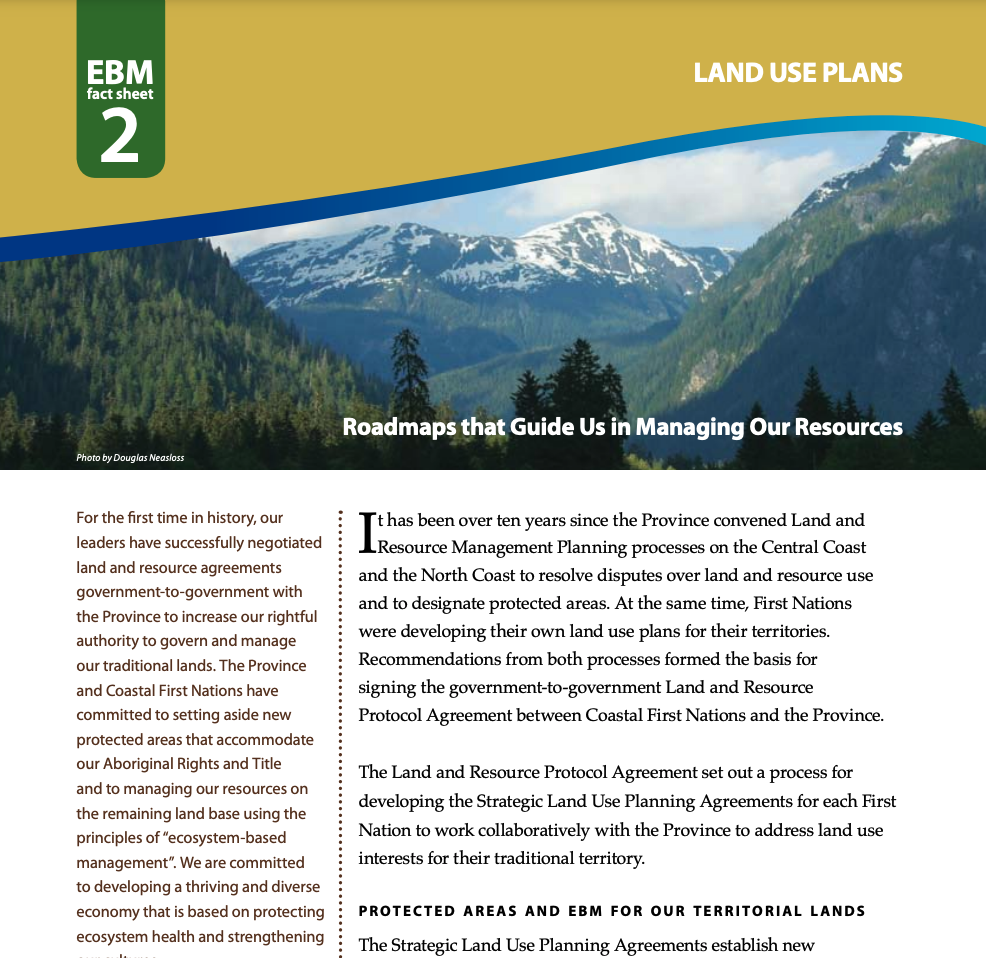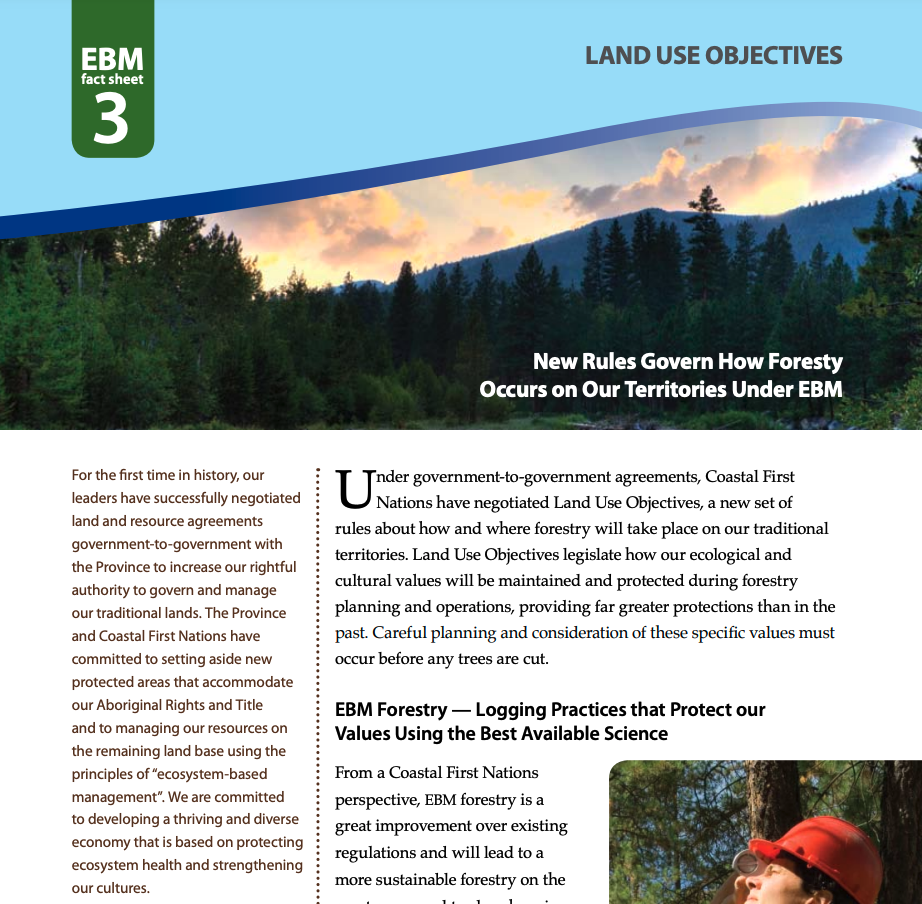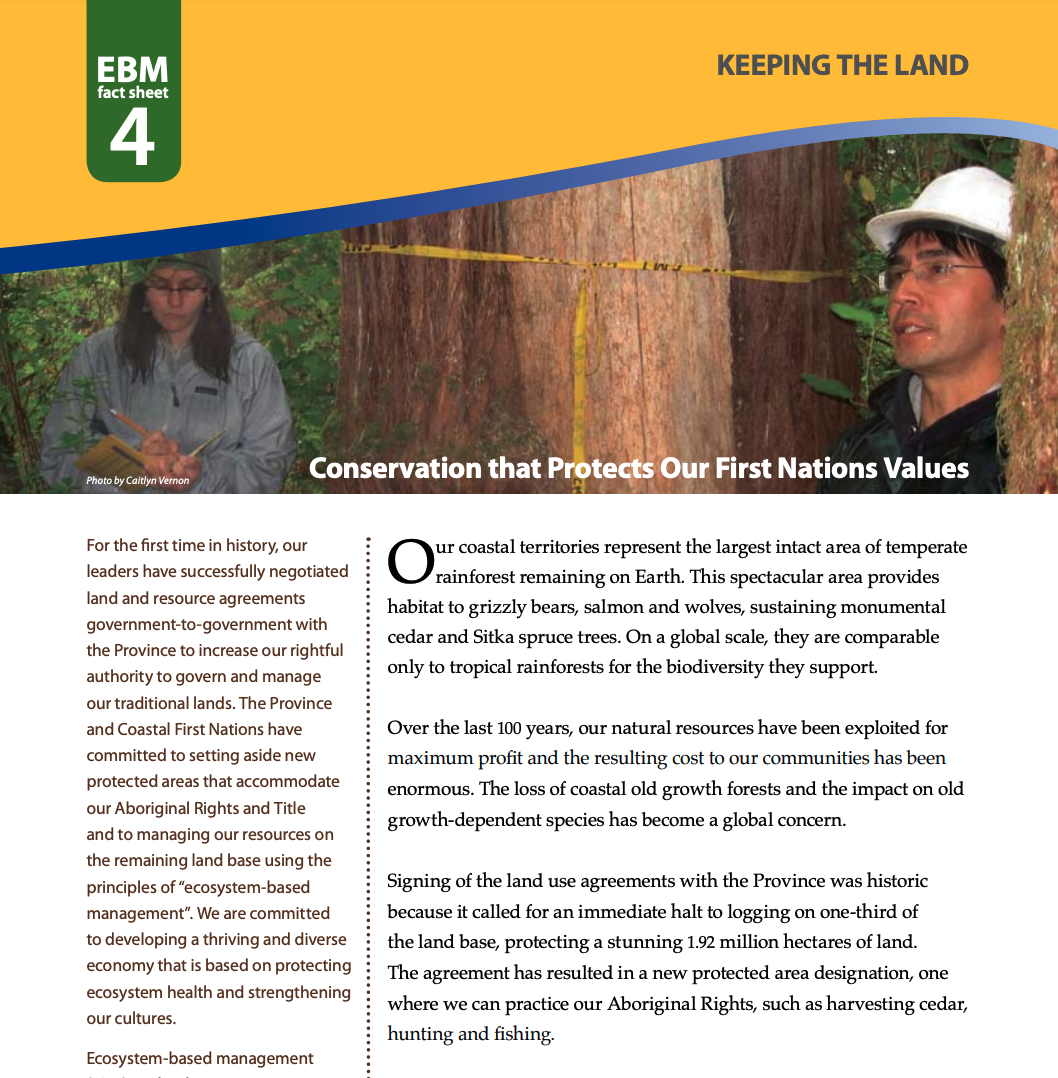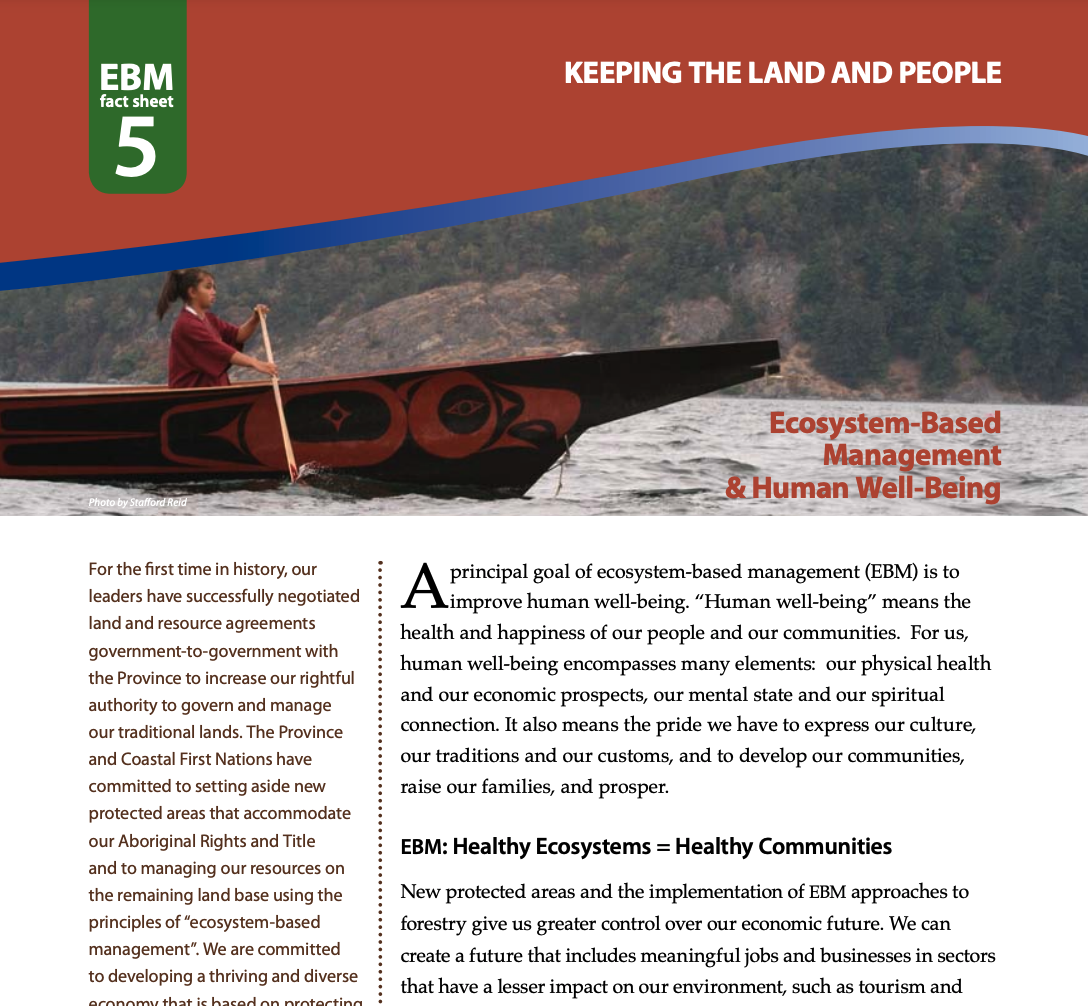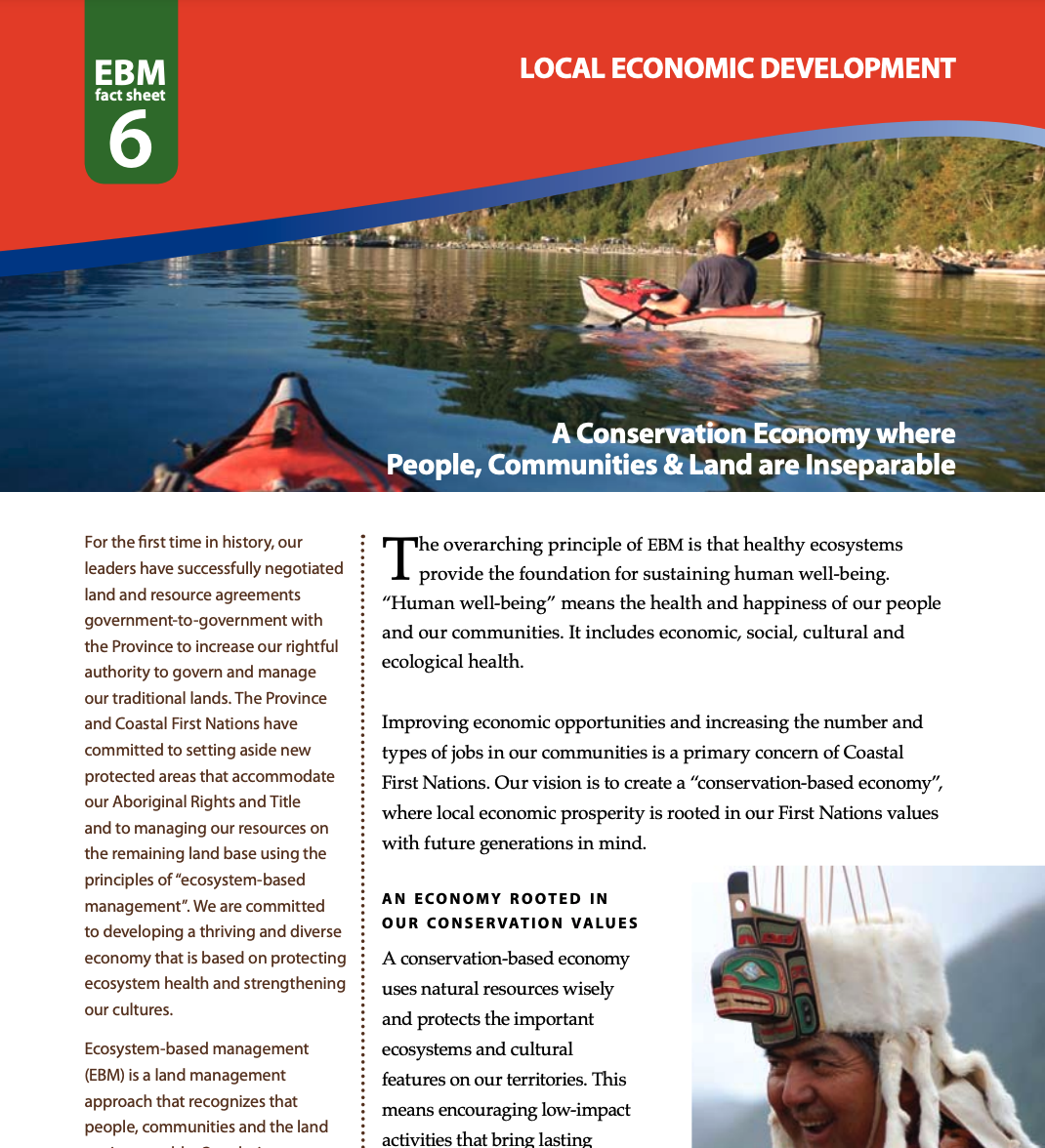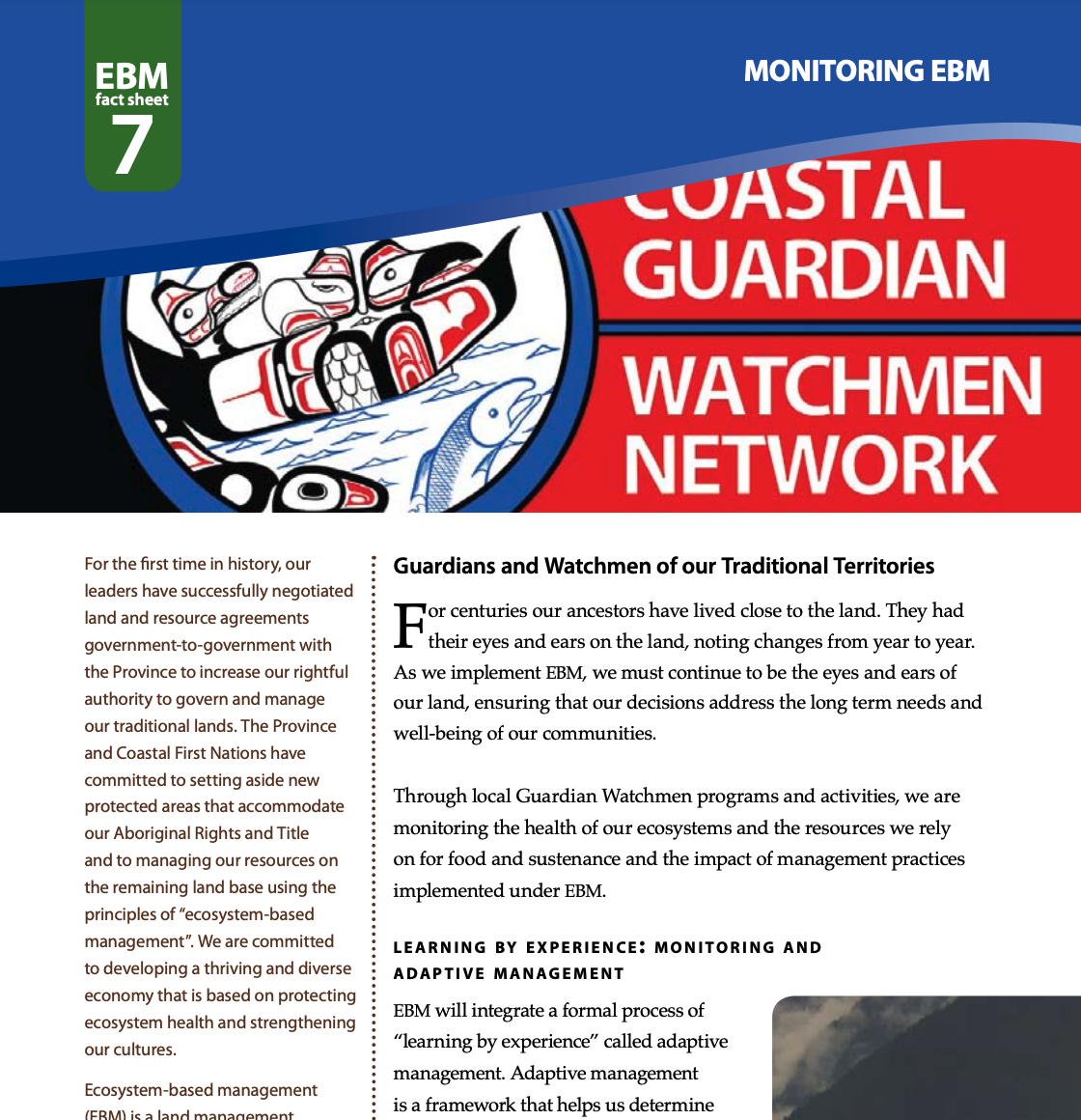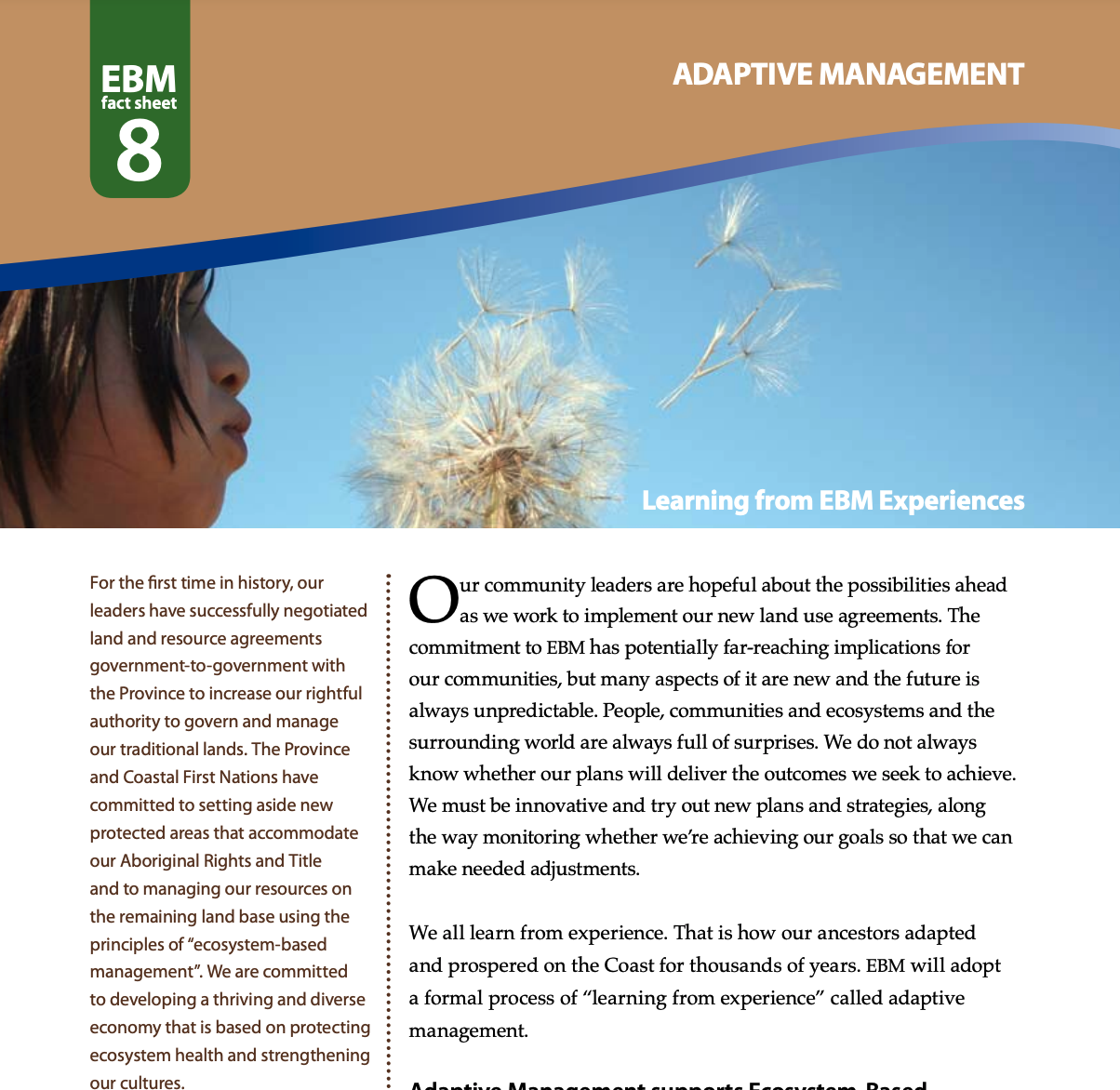Sustainable Management
Overview
For decades, CFN member Nations had little say in how trees were harvested in their own traditional lands.
Forestry tenures (the amount of wood that can be harvested year after year) were held by logging companies targeting key old-growth forests with heavy-handed logging methods. First Nations, largely excluded from resource jobs and opportunities, could only watch as old-growth forests were depleted.
Today, Forest and Range Agreements with the BC government have opened the door to sustainable commercial forestry led by First Nations, giving power back to our communities to determine how forest resources are managed in our territories.
for Future Generations
Watch The VideoBuilding Self-Sufficient Communities
Beyond the many conservation initiatives that aim to preserve our natural and cultural heritage, First Nations in the Great Bear Rainforest are working to build self-sufficient communities through sustainable economic development.
This means generating our own sources of revenue to support sustainable management practices that will preserve our resources into the future, including science and research initiatives and support for stewardship staff who effectively monitor our land and sea.
Originally negotiated in 2002, the Forest and Range Agreements give CFN member Nations improved access to forestry tenures, and ensure coastal communities share in provincial forestry revenues from commercial logging in our traditional territories
Explore more stories:
Resources
CFN produces a wide range of reports, fact sheets and other publications. Check back regularly, as we will post new resources here.


